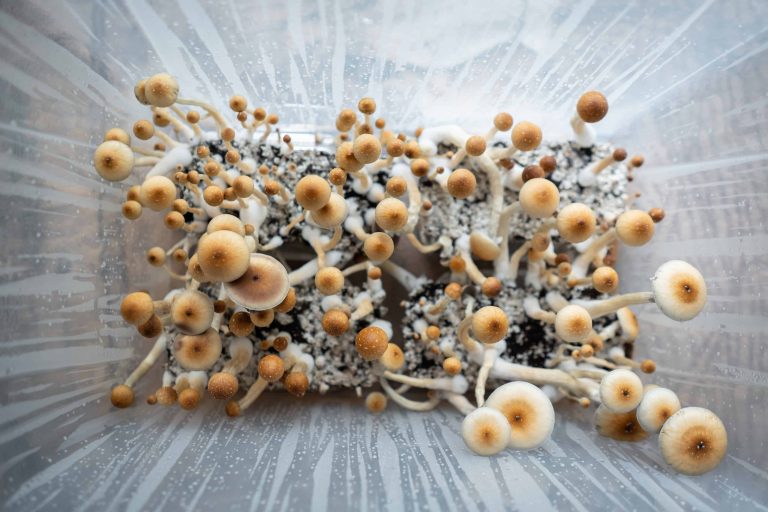COMPASS Pathways, a biotechnology company dedicated to innovation in mental health, gained $285 million in private funding to research psychedelics, Behavioral Health Business reports. This amount should be enough to back their work through late 2025. By then, Biden willing, there is hope such treatment methods will have FDA approval.
“We view this investment as a validation of the potential of psychedelic medicine and the importance of a rigorous and evidence-based approach,” Kabir Nath, CEO of COMPASS Pathways, said in the press release. Pathways named 11 investment firms led by TCGX and Aisling Capital, including Vivo Capital, RA Capital, Paradigm BioCapital Advisors LP, Logos Capital and Laurion Capital Management, and others.
At the American Psychiatric Association (APA) 2022 Annual Meeting, COMPASS Pathways unveiled the “largest randomized, controlled, double-blind study of psilocybin therapy ever completed,” according to a May 2022 press release. The data shows “significant” improvements in treatment-resistant depression (TRD) symptoms using its synthetic psilocybin formulations (COMP360).
Later that year, the London-based biotech company announced the phase 3 trial of treating treatment-resistant depression, which is the first-ever phase 3 study of psilocybin therapy. COMPASS Pathways is also working on phase 2 trials for the use of COMP360 in treating post-traumatic stress disorder (PTSD) and anorexia nervosa.
Back in October of 2018, COMP360 for treatment-resistant patients secured the FDA’s Breakthrough Therapy designation, which is reserved for medical treatments demonstrating substantial evidence that they are better than the status quo.
While antidepressants like SSRIs can take up to six weeks to kick in, psychedelics, such as psilocybin, can give relief to patients rapidly and, as this study aims to prove, more effectively. When someone is diagnosed with treatment-resistant depression, it’s assumed that they’ve already tried such avenues to no avail.
A 2020 study suggests that traditional antidepressants improve symptoms in about an extra 20 out of 100 people. Conversely, another study published in 2020 indicates that psilocybin is not only an effective and quick-acting treatment for depression disorder, but more than half of the study’s participants stayed in remission for up to four weeks following treatment.
However, research also shows that serotonergic antidepressants like SSRIs and SNRIs can decrease psilocybin’s effects, so one should taper off these methods before diving into a psilocybin regimen.
Currently, ketamine is the only psychedelic (technically, ketamine is a dissociative anesthetic with some hallucinogenic effects) that’s FDA-approved for mental health, although patients primarily use it off-label.
COMPASS Pathways is not the only place looking into psilocybin therapy. Recently, doctors from the University of Texas MD Anderson Cancer Center in Houston began a trial for treating cancer-related anxiety and depression in patients by “examining the effects of psilocybin for patients with controlled advanced cancer on maintenance therapy experiencing challenges with mental health.”
“Psychedelics, specifically psilocybin, have shown promise in treating various psychological symptoms including anxiety, depression, post-traumatic stress disorder, and end-of-life distress,” the doctors wrote. “Although a study focusing on gynecologic cancers has not yet been completed, the studies with mixed cancer diagnosis are encouraging.”
Although psychedelics “modulate brain activity and have been associated with therapeutic effects such as increased neuroplasticity and modulation of reward pathways, not dissimilar to the mechanisms underlying the therapeutic mechanism of conventional antidepressants,” the researchers added that their work with psilocybin-assisted psychotherapy “suggests lasting benefits from just one to two sessions, compared with the chronic use that is needed with selective serotonin reuptake inhibitors.”
There may be even more advantages to psilocybin therapy than efficacy. A recent study published by the Cambridge University Press suggests that psilocybin-assisted therapy could be a “cost-effective” option compared to other forms of therapy.
While some reports, one from President Joe Biden’s youngest brother, say the president is “very open-minded” about therapeutic psychedelics, other lawmakers, such as Alexandria Ocasio-Cortez, the Democratic Representative from New York, have vocalized concern that Biden may derail bipartisan efforts to address psychedelics due to his past conservative comments about cannabis.
However, there is optimism that both psilocybin and MDMA will gain FDA approval by the end of the year, so despite Biden’s sometimes regressive stances, the changing attitudes towards psychedelics, combined with science from places such as COMPASS Pathways and others, should reign supreme and lead us towards safe and effective mental health treatments.
